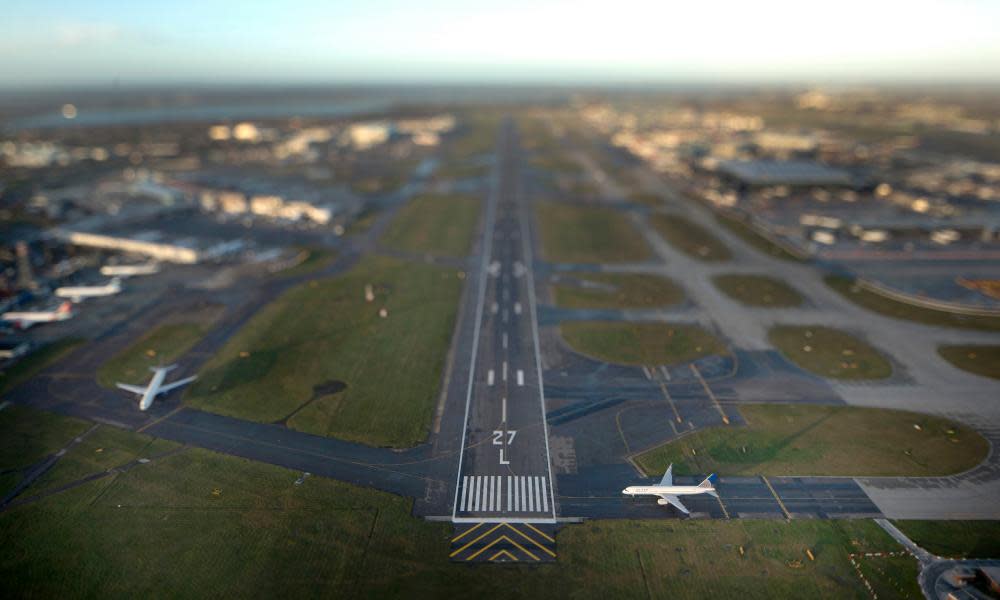US airlines 'very concerned' over aviation regulations post-Brexit

US airlines have told the UK to move faster to ensure passenger and cargo flights to Heathrow, Stansted and other airports will continue without disruption after Britain leaves the EU.
The aviation trade body Airlines for America, whose members include United, American Airlines and FedEx, says the multibillion pound traffic in both directions will be put at risk unless politicians concentrate their minds on the impact Brexit will have on the industry.
“The negotiations are moving slowly, we are very concerned about the timing,” said Nick Calio, its chief executive, who was in London on Tuesday to press the case in meetings with aviation minister Martin Callanan and other MPs.
Calio warned that even a day’s disruption could be catastrophic, with 140 passenger flights and 43 cargo flights a day between the US and Britain.
Car parts, farm machinery, food and iPhones are among the many exports flown into the UK and Europe from the US on a daily basis under the Open Skies agreement, which allows EU and US airlines flying into the European Union to operate in each other’s countries.
Heathrow slots are “gold” gateways to the rest of Europe and Stansted is a major “airbridge” for cargo – even for FedEx, whose main distribution centre is in Paris.
The aviation sector’s concern is that unlike other businesses, which can fall back on World Trade Organisation agreements, a cliff-edge Brexit would mean flights grounded as there are no historic rules to fall back on.
“We obviously view it with a sense of urgency given the amount of commerce that goes back and forth between every party involved here,” said Calio.
“We are trying to imbue a sense of urgency and educate policymakers on both sides of the UK and EU that this needs to be dealt with and can’t be subject to what would be a series of political decisions.”
He said he had expected that more progress would have been made both in the UK and in the EU to prevent economic damage across Europe if flights were inadvertently grounded in the absence of a deal.
Although he is confident a deal could be reached in time, Calio is sufficiently concerned that officials in both the UK and the EU do not appreciate the risks involved.
He said: “One European source said, and these are his terms not mine: ‘We want to squeeze their balls,’ and I said: ‘But you are squeezing your own at the same time.’
“We are very concerned that there won’t be an agreement in time,” Calio added. “It’s apparent in our discussions that Europe wants to extract a price and some of things that are being discussed on the European side would [mean that we could] not continue flights as US citizens, UK citizens and frankly EU citizens know them today.”
His comments underline those of others in the business, including Ryanair, that the UK needed a replacement Open Skies deal by March or summer 2018 to allow airlines to contract their airport slots for 2019 around Europe and beyond.
Calio said some airlines would continue flying if there was no deal but they would be looking at contingent liabilities if customers were left in the lurch in March 2019.
He said the current furore over Ryanair’s flight cancellations was an illustration of what can happen when things go wrong.
He said US carriers had learned to their cost what it was like to leave decisions in politicians’ hands when air traffic control was threatened with closure in the US in 2013 because the national budget was not agreed in a “sequestration” debacle.
He recalled: “They shut the government down, they laid off the air traffic controllers and the outcry from people who couldn’t get on an airplane was so intense that they fixed it in three days.
“They should have done it weeks and months ahead of time, which is what we have been saying [about Brexit].”

 Yahoo News
Yahoo News 
